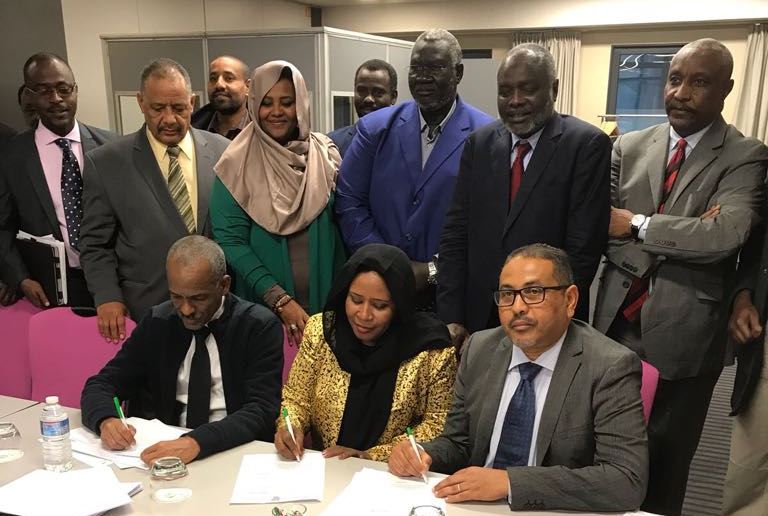Eastern Sudan unity call warmly welcomed, says Beja official

March 21, 2018 (KHARTOUM) – The memorandum of understanding for the unification of eastern Sudan forces has created wide political dynamics in the arid region, said the secretary general of the Beja Congress Party on Wednesday.
The Eastern Sudan opposition groups, including the United Popular Front for Liberation and Justice (UPFLJ), the Beja Congress Party and civil society groups from the region endorsed a joint platform for the settlement of the crisis of the neglected region on 17 March.
The declaration which was signed on the sidelines of the opposition meeting in Paris, calls for a new social contract to build a united Sudan embracing the cultural and ethnic diversity of its population, with a decentralized system giving each region a degree of self-governance, and allocating the needed resources.
“The Memorandum of Understanding has created a political and popular dynamism in eastern Sudan and found a great acceptance and support from various groups,” told Sudan Tribune the Secretary-General of the Beja Congress, Osama Said.
“More importantly, the memorandum is the nucleus for the establishment of an umbrella to gather all the eastern Sudan forces without exception, and here I call on all those who are interested in the issue of eastern Sudan to open a discussion on (the memo) and join it,” he added.
The political charter was signed by a faction of the UPFLJ led by Alamin Daoud, the opposition faction of the Beja Congress Party and Najla Mohamed Ali of eastern Sudan civil society groups.
However, it does not include a UPFLJ faction led by Zeinab Kabashi which has been weakened by the defection of the Beja Congress after her support to the Sudan People’s Liberation Movement-North of Abdel Aziz al-Hilu.
The Beja group remains part of the Sudanese Revolutionary Front led by Malik Agar.
On the future of the eastern Sudan region, he said the solution of eastern Sudan problem comes within the framework of a holistic approach to the Sudanese crisis.
“The best option for the region is the self-rule and allocation of needed resource in line with the diagnosis that the eastern Sudan crisis is the result of political, economic, social and cultural marginalization, against which the Beja Congress led an armed struggle for 13 years,” he stressed.
In August 2016, the eastern Sudan groups requested the African Union mediation to open an additional third track for the eastern Sudan crisis, and warned that ignoring their cause would lead to frustrate the people of the region who “may resort to other options that would not be in the interest of national unity”.
In October 2006, the eastern Sudan armed opposition groups signed, under the umbrella of the Eastern Front, a peace agreement with the Sudanese government brokered by Eritrea. But, a faction of the Beja Congress and other groups denounced the deal saying the national government didn’t fulfil the agreement.
(ST)
